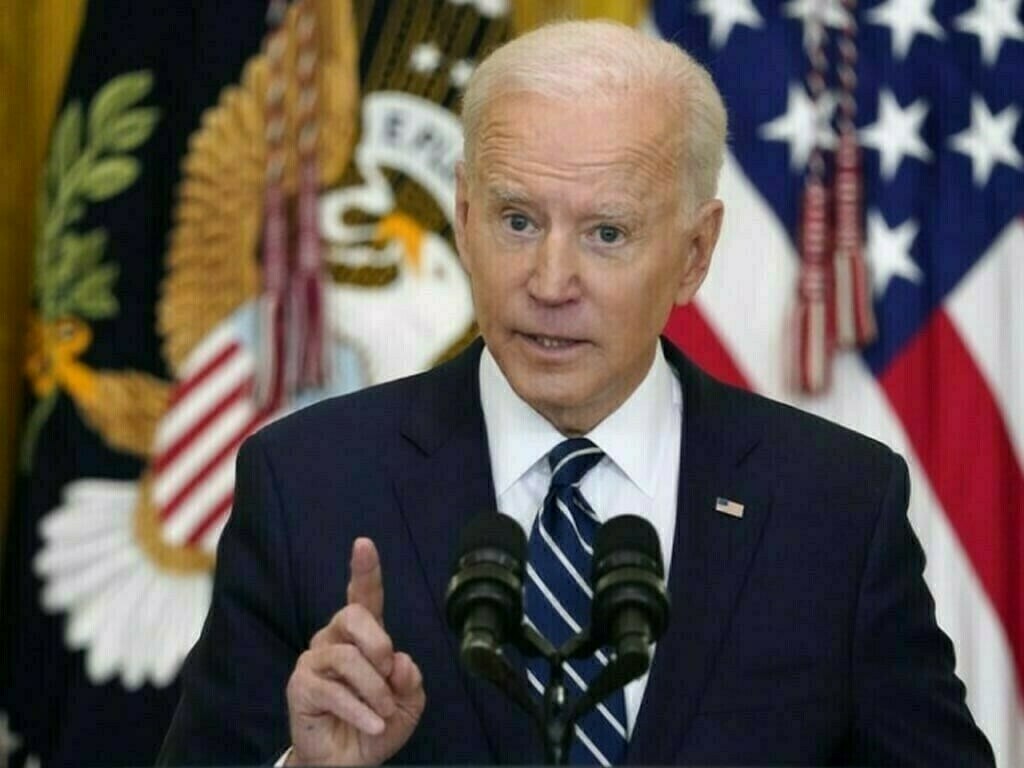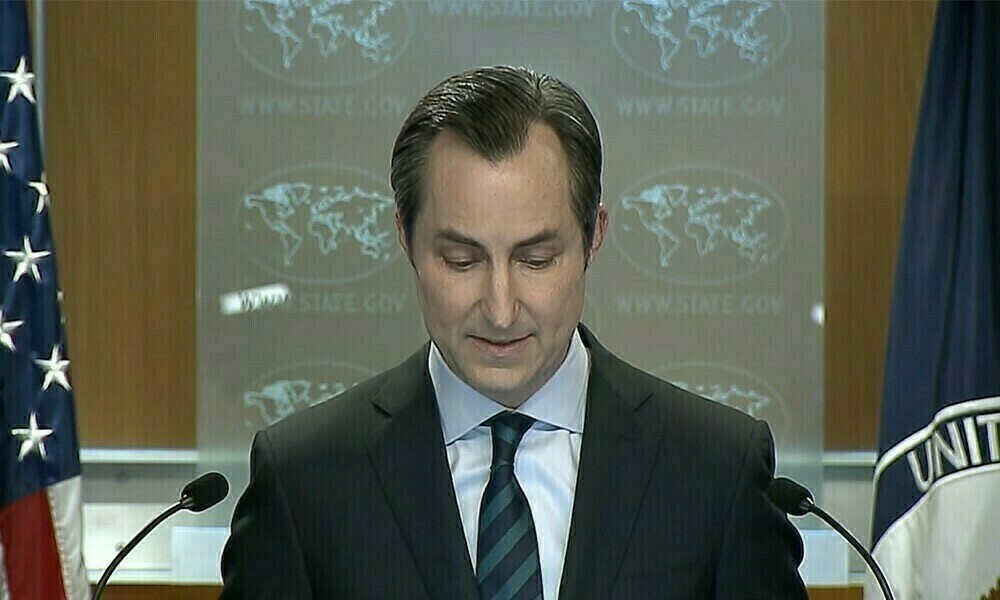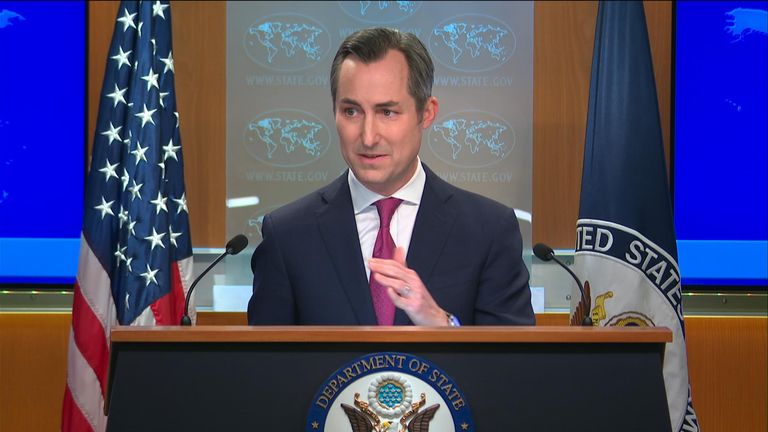WASHINGTON, D.C. — President Joe Biden revealed on Thursday that discussions were underway regarding potential Israeli military strikes on Iranian oil facilities. The comments, made during a White House briefing, sent oil prices surging by five percent, with global markets reacting swiftly to the potential escalation of Middle East tensions. These developments come just a month before the U.S. presidential election, intensifying the stakes for Biden and his Democratic administration.
The President, however, clarified that he did not anticipate any imminent retaliation by Israel for Iran’s recent missile barrage. The attacks, which targeted Israeli territory earlier in the week, have raised concerns about the potential for broader conflict in the region. Biden’s remarks hinted at diplomatic caution, though the discussions of strikes suggest all options remain on the table.
Biden’s Comments on Israeli Strikes
When pressed by reporters about whether he supported Israeli strikes on Iranian oil facilities, Biden’s response was notably cautious. “We’re discussing that,” he said, before adding, “I think that would be a little… anyway.” This unfinished statement has left analysts speculating about the internal debates within the administration regarding the appropriate course of action. Any military strike on Iran’s oil infrastructure could have significant geopolitical and economic ramifications, especially given the central role of oil in the global economy.
Biden’s comments quickly reverberated through the oil markets, with prices jumping by five percent. This surge underscores the fragility of global energy supplies and the impact that tensions in the Middle East can have on oil prices. The sharp increase is also a reminder of the delicate balance that world leaders must navigate when addressing conflicts in the region, where even the hint of military action can disrupt global markets.
The Political Implications of Rising Oil Prices
The spike in oil prices comes at a critical time for Biden’s Vice President, Kamala Harris, as she prepares for the upcoming U.S. presidential election on November 5. With Republican challenger and former President Donald Trump focusing heavily on economic issues such as inflation and the cost of living, rising fuel prices could become a significant point of contention. The cost of living is a major issue for American voters, and any sustained increase in oil prices could add to the economic pressure facing households across the country.
Biden’s handling of international relations, particularly in the Middle East, will likely play a crucial role in shaping voter opinions. The President’s measured response to Iran’s missile attacks and his focus on diplomatic solutions may be an attempt to project stability and control. However, any escalation that leads to higher gas prices at the pump could create challenges for the Democratic campaign, particularly as Trump continues to attack the administration on its economic policies.
Iran’s Retaliatory Strikes and Growing Fears of Regional Conflict
Tensions between Israel and Iran escalated earlier in the week when Iran launched approximately 200 rockets in a direct missile attack on Israel. The missile strikes, which marked one of the most significant escalations in the conflict, were reportedly in retaliation for the killing of Hassan Nasrallah, the leader of Hezbollah. Nasrallah’s death has intensified the longstanding hostility between Iran and Israel, further complicating an already volatile situation.
Hezbollah, a Lebanese militant group with close ties to Iran, has been launching rockets into Israel since the aftermath of the October 7, 2023, attacks on Israel by Iran’s Palestinian ally Hamas. The October attacks by Hamas prompted a crushing retaliatory offensive by Israel in Gaza, further straining relations in the region and heightening fears of a wider conflict.
Biden’s Position on Israeli Retaliation and Diplomatic Relations
In his comments on Thursday, Biden reiterated that the U.S. does not “allow” Israel to take military action but instead advises the Israeli government on its options. “First of all, we don’t ‘allow’ Israel, we advise Israel,” Biden said, emphasizing that Israel retains its autonomy in military decision-making. “And there is nothing going to happen today,” he added, suggesting that no immediate military action was expected.
The President also emphasized that he would not back any Israeli attack on Iranian nuclear sites, a critical point of contention in the ongoing conflict. Iran’s nuclear program has been a source of deep concern for Israel, which views it as a direct threat to its security. However, Biden’s stance signals a preference for diplomatic solutions over military confrontation, despite the ongoing hostilities between the two nations.
Israeli Prime Minister Benjamin Netanyahu, however, has shown little interest in calls for restraint in recent weeks. Netanyahu’s government has continued to target Hezbollah in Lebanon, further inflaming tensions in the region. Israel’s security concerns remain at the forefront of its policy decisions, and Netanyahu has made clear that he is willing to take aggressive action if necessary.
Global Reactions and the Path Forward
The international community is closely watching the developments in the Middle East, with many fearing that the conflict between Israel and Iran could spill over into a broader regional war. A potential Israeli strike on Iranian oil facilities would likely have far-reaching consequences, not only for the two nations involved but also for the global economy.
Oil prices, already volatile due to geopolitical tensions, could rise even further if military action disrupts the flow of oil from the region. This, in turn, could exacerbate the global cost of living crisis, with higher energy costs impacting everything from transportation to food production.
For now, the Biden administration appears to be walking a tightrope between supporting its key ally in the region and avoiding actions that could lead to wider conflict or economic instability. As the situation continues to unfold, the U.S. will be faced with tough decisions about how to respond to the escalating tensions between Israel and Iran.
President Biden’s acknowledgment of discussions around Israeli strikes on Iranian oil facilities has raised the stakes in an already tense geopolitical landscape. With just weeks to go before the U.S. presidential election, the President must balance his administration’s support for Israel with the potential economic fallout from rising oil prices. Meanwhile, the conflict between Israel and Iran shows no signs of abating, with both sides preparing for the possibility of further hostilities. As the world watches, Biden’s decisions in the coming days will be crucial in determining the direction of U.S. foreign policy and the outcome of the ongoing conflict.


